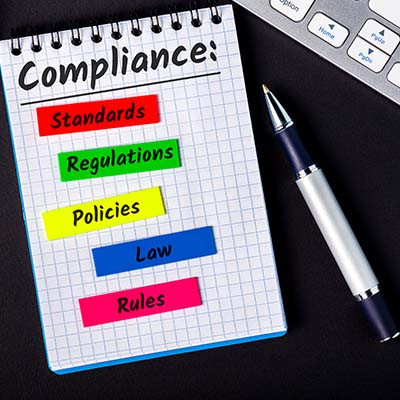Phantom Technology Solutions Blog
Let’s assume that, as a responsible business owner, you’ve established standard operating procedures for your employees to follow—including the tools they can officially use in the course of their tasks. That said, there is always the chance that someone encountered an issue and independently investigated and “fixed” it.
If anyone is using an unapproved tool or an external account to access and manipulate your business data, you have a problem… a problem known as shadow IT.
Shadow IT may have a pretty cool-sounding name, but its impacts on your business are anything but. The term “shadow IT” describes any technology used in the business setting without the express knowledge and go-ahead of the IT department. While it may be common, it certainly isn’t good… despite often having the best intentions behind it.
For businesses, staying compliant with data regulations isn’t just about avoiding hefty fines; it’s about building trust with customers, protecting sensitive information, and keeping operations running smoothly. Ignoring compliance isn’t an option. A single slip-up can lead to legal trouble, financial losses, and serious damage to your company’s reputation.
Typically, we use this space to talk about technology-related issues that have a positive impact on business, society, and individuals. Information technology has and will continue to transform the world we live in. One of the central topics of this giant IT transformation is artificial intelligence (AI) and where it fits into the paradigm of modernity. Much has been made about the potential benefits of AI—and many of them are legitimate—but in today’s blog, we wanted to discuss the dark side of AI, and whether or not immediate regulation of the technology is a prudent decision.
Every time you log into an account, you have to enter a password. And we know exactly what you’re thinking: why? Good password hygiene is important, especially in high-profile environments like your business. Passwords play a crucial role in securing your network, so you should know how to build better passwords—if not for your own sake, then for your business.
In today’s world of flexible working environments and conditions, you want to be intentional with how you share and distribute access to your company’s data. You’ll need to ensure that you are not accidentally putting your data in harm’s way due to outdated and insecure data retrieval policies and procedures.
In 1996, the United States Congress passed the Health Insurance Portability and Accountability Act, better known as HIPAA, in an attempt to streamline the healthcare system while also maintaining individual privacy of individuals’ health records. This regulation allowed people to more effectively and securely transfer their health coverage without the risk of fraud or abuse of health records. As you can imagine, your technology plays a significant role in making this happen.
Many companies, individuals, and organizations have sought to get the most value out of cloud computing, making it an industry that also requires a certain level of regulation. With its increasing integration into our daily lives, it’s no small wonder that there is a greater effort to control certain aspects of it. Here is what you can expect from cloud regulation in the near future.
There are numerous industries that, in one way or another, deal with sensitive data on the regular. In order to protect this data, numerous laws, regulations, and other requirements have been put on the books that require businesses to maintain—as well as prove—their compliance to them.
Today, we wanted to focus on how a business would prove their compliance, so we’re going to dive into the subject of compliance reporting.
Despite what detractors say, regulations are in place for good reason. They typically protect individuals from organizational malfeasance. Many of these regulations are actual laws passed by a governing body and cover the entire spectrum of the issue, not just the data involved. The ones that have data protection regulations written into them mostly deal with the handling and protection of sensitive information. For organizations that work in industries covered by these regulations there are very visible costs that go into compliance. Today, we look at the costs incurred by these organizations as a result of these regulations, and how to ascertain how they affect your business.












